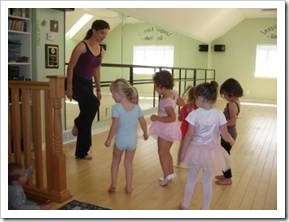 I am sure you have heard a lot about troubled kids and troubled teens, but not much about troubled teachers. You have probably heard about learning difficulties, but not a lot about teaching difficulties. I think that many times when we do talk about kids’ difficulties, regardless of their age, the origin is some parenting or teaching difficulty.
I am sure you have heard a lot about troubled kids and troubled teens, but not much about troubled teachers. You have probably heard about learning difficulties, but not a lot about teaching difficulties. I think that many times when we do talk about kids’ difficulties, regardless of their age, the origin is some parenting or teaching difficulty.
Lately, I have had many requests for kids’ coaching from parents who were concerned about their kid’s behavior. When I asked them to tell me why they thought their child needed coaching, I discovered the most of these kids’ behavior “problems” were the result of teaching difficulties.
Teachers, as most people forget, are just human beings with a big task. If you hang around teachers long enough, you will find out teaching is not an easy profession. Teachers have the ability to make a huge difference in a kids’ life, but they can do it in a good way or in a bad way. They can instill passion, motivation and interest or kill them for life.
So what can we do about this as parents?
Since teachers come and go and you remain the stable educator in your kids’ life, it is your responsibility to add your support to the great teachers and compensate for the troubled ones.
Over 15 years of schooling (give or take), your child will meet many teachers. In the early years, they will have fewer teachers and their teachers will be more holistic in their work and will be more involved with the child’s emotional and social life. As your child grows, his or her teachers will be more specialized and will be less and less involved in the kids’ life, which is a shame, because teens require stronger role models and more social and emotional support.
The good news: no matter how old your child is, you are there for them!
Over years of schooling, the chance that your child will have 100% excellent teachers that cater for their every need and interest and motivate them is very slim. Even if you choose the best school, your kids’ enthusiasm to go to school every morning will depend greatly on their teachers’ ability to motivate and interest them.
Finding the source of the problem
 It is very important when trying to solve any academic, social or behavior problem, to find the source. If the source is the kid, the required solution will be different than if the source is a teacher who is angry, boring or just not suitable to your child’s communication style.
It is very important when trying to solve any academic, social or behavior problem, to find the source. If the source is the kid, the required solution will be different than if the source is a teacher who is angry, boring or just not suitable to your child’s communication style.
Unlike what people think, when parents face such a problem, they tend to blame their kids first, which only makes things worse. Kids who behave normally starts developing a negative self image when being blamed for not succeeding in school – “you are lazy”, “you didn’t do your homework”, “If I were the teacher I would be upset too” or “you need to study harder for your exams”.
As a special education teacher, I can tell you that overcoming a learning difficulty is much easier than overcoming negative self-image. Whatever your kid’s problem, blame is NOT a good idea. You must always keep yourself on the same side as your child if you want to help.
Symptoms of a problem at school
The first thing you need to do is recognize that your child has a problem. It is good to have your antennas tuned to find out when it starts. Usually, kids show signs in their behavior and language.
- If they complain a lot, listen to them! Every kid has a complaint pattern, so study your kids’ patterns and when something changes, find out why.
- If your child is sick too often, this may be a sign that he or she is disturbed about something. Try finding the source: exams, someone at school – child or adult, social anxiety, sports, not keep up with school work, etc.
- If your child is very emotional, cries too much, seems too sensitive or feels insulted immediately, this is a sign that he or she is struggling emotionally and needs support. Try to find the need that is not fulfilled.
- If your kid’s academic achievements drop, this is a sign that something is happening. Any significant drop (two marks) is a sign that something is happening.
 If your child starts saying negative things about himself, like “I’m stupid”, “I’m not good at this” or “I’m lazy”, this is a sign that he has already developed a negative self-image and that something is definitely wrong and needs fixing. Do not allow your kid to say bad things about himself and try to find out where he got the idea in the first place.
If your child starts saying negative things about himself, like “I’m stupid”, “I’m not good at this” or “I’m lazy”, this is a sign that he has already developed a negative self-image and that something is definitely wrong and needs fixing. Do not allow your kid to say bad things about himself and try to find out where he got the idea in the first place.- If your child does not want to go to school, this is the ultimate sign. It is OK to say, “I don’t want to go to school” when they are tired or when there is a special occasion they do not want to miss, like going to the airport to pick their grandparents up or watch a sibling perform on stage, but if every day is a challenge, the kid has a problem and need help!
There are two approaches to finding out that your child’s teacher has teaching difficulties. One is to move your child to another class and the other to keep them in the class and help them handle the situation or compensate at home for what is missing in class.
If you move your child to another class, you hope to get a better teacher but your child’s ability to handle different teachers will be reduced. However, if you keep them in the same class and help them cope, you risk your child dropping in academic achievements or losing the desire to go to school at all.
In my opinion, the two approaches need to be implemented in order. First, it is better to help the child handle the situation and compensate at home and when things gets out of control – for me, this is when my kid does not want to go to school – the next level is to move them to another class.
Our Daughters’ teacher
 This year, I had to really walk my talk on this. My 9-year-old daughter Noff has a teacher who is the opposite of what she needs. When I heard she was going to have a male teacher, I was very happy, because I believe every student must experience a male teacher at least once in their school life, but when she started complaining and crying and changed her behavior, we knew something was going on.
This year, I had to really walk my talk on this. My 9-year-old daughter Noff has a teacher who is the opposite of what she needs. When I heard she was going to have a male teacher, I was very happy, because I believe every student must experience a male teacher at least once in their school life, but when she started complaining and crying and changed her behavior, we knew something was going on.
Noff is a brilliant student and a very confident girl. She is colorful and friendly and loves dancing, moving and singing. On the first day of school, there was absolutely nothing on the wall – no pictures, no posters and no signs. On the adjoining class’ door, there was a sign with the name of the teacher and the names of all the kids. The parents from Noff’s class stood there feeling unsure they were even in the right place. Her teacher did not even write his name or “Welcome” or the board.
We said to Noff, “Maybe he’s the kind of teacher who wants the kids to decorate the class instead of the teacher”.
The first week of school, she came and said Mr. M talked about being organized and did not want to see anything outside the “tidy tray” (the tray under the kids’ desk). She said, “What is he talking about? His table is so full of stuff, he can’t find anything in the mess and he wants our stuff in the tidy tray?!”
We said to her, “Maybe it’s just the beginning and he has lots of paperwork to do”.
Then there was the form system. When you misbehave (Noff said this included making the smallest sound or even sneezing), Mr. M gets upset and gives you a yellow form. Yellow forms go home to be signed by the parents. 3 yellow forms lead to a green form (go figure) and 3 green forms lead to a red form, which is when the principal takes over.
We said, “Noff, this is not the end of the world. If he is the kind of teacher who is sensitive to noise, just don’t talk when he does and you’ll be fine. You always get along with your teachers, right?” We what did not say was, “Why on Earth would anyone who cannot handle noise become a teacher?” Do you think she knows this is what we think? I suspect she does, but why make things worse by saying it?
 Things got worse when Noff sat down to do her homework and said to me, “I don’t know how to do this” (adding up 3-digit numbers).
Things got worse when Noff sat down to do her homework and said to me, “I don’t know how to do this” (adding up 3-digit numbers).
I looked at her and said, “Of course you know how to do it. You and I have already added up 6-digit numbers, so 3 digits are a piece of cake for you”.
Noff was still stressed. She started carrying and saying she could not do it. I sat next to her and said, “OK, let’s do it together” and as I sat with her, I realized her teacher had given his class a crowded, messy sheet with not even enough space for the answers.
Many things happened over the first 10 weeks of the school term. Every time, we gave Noff some explanation for Mr. M’s messy, black and white, rigid style of teaching, but we quickly realized she was having a problem.
Two years ago, Noff had a teacher who was exactly what she needed – a fun, artistic, singing and dancing teacher. Every day was a fun day. She got up in the morning and went to school happy, bright eyed and excited. That year, we had no requests to stay home at all.
Last year, Noff had a teacher who was good for her. She was not as jumpy and jolly as the one before her, but she was artistic and very encouraging and Noff loved going to school. Last year, Noff asked to stay home once or twice, but this happened because she was tired.
This year, she asked to stay home 6-7 times in a single term. Gal and I talked about it and realized we needed to give her other reasons to go to school. This is what we found to be working.
 We asked her what she loved doing with Mr. M and she said he did science experiments and she loved them, so now we pay more attention to her stories about science and are very supportive when she needs to bring something to school for an experiment – egg cartons, plastic cups or whatever.
We asked her what she loved doing with Mr. M and she said he did science experiments and she loved them, so now we pay more attention to her stories about science and are very supportive when she needs to bring something to school for an experiment – egg cartons, plastic cups or whatever.- Since Noff is in a choir, we remind her on nights before choir days, “Choir tomorrow. How exciting” and when she comes back from school that day, we ask a lot about the choir.
- We registered her for an after-school Art class, which made her very excited, and we talked about it and she brought some work home and we did it together, so Wednesdays were fun days, because she had Art.
- We registered her for dancing, so the night before, we prepare her clothes and she is very happy and excited and she comes home and shows us the dance moves, which makes Fridays cool, because she has dancing.
- Her school runs a Dance Fever program, which teaches the kids dance during school hours. Last year, Noff won the prize for the Most Groovy Girl because she danced so beautifully and inspired her friends. So we remind her on Dance Fever days she is going to have a fun day and it works!
- On one of the days, Noff goes to after school care with her best friends (they are not in the same class), so that gives her something to look forward to.
- We do our best to come up with exciting things in her schooling. When the students in her class formed clubs, we helped her make cards with the name of the club she made up. When she wanted to invite friends to her birthday party, we encouraged her to take the invitations early so the kids would talk about her for a while. We use every tiny thing we can think of to make her happy and interested in going to school.
 I have to say that compensating for a teacher with teaching difficulties is not easy and requires a lot more work, but I believe our role as parents is to make sure Noff’s teacher does not kill her enthusiasm and the most important thing is to recognize she is her normal self and she has no difficulty.
I have to say that compensating for a teacher with teaching difficulties is not easy and requires a lot more work, but I believe our role as parents is to make sure Noff’s teacher does not kill her enthusiasm and the most important thing is to recognize she is her normal self and she has no difficulty.
This term was much better. Out of 7 weeks, Noff has only asked to stay at home twice and both times were after very long evenings when she was tired. So it seems like she is managing. But if it things gets worse again, we may have to go to Level 2.
Tell us what would you do if your child says he or she does not want to go to school?
What is your approach to teaching difficulties?
Happy parenting,
Ronit
No posts found
 If your child starts saying negative things about himself, like “I’m stupid”, “I’m not good at this” or “I’m lazy”, this is a sign that he has already developed a negative self-image and that something is definitely wrong and needs fixing. Do not allow your kid to say bad things about himself and try to find out where he got the idea in the first place.
If your child starts saying negative things about himself, like “I’m stupid”, “I’m not good at this” or “I’m lazy”, this is a sign that he has already developed a negative self-image and that something is definitely wrong and needs fixing. Do not allow your kid to say bad things about himself and try to find out where he got the idea in the first place. We asked her what she loved doing with Mr. M and she said he did science experiments and she loved them, so now we pay more attention to her stories about science and are very supportive when she needs to bring something to school for an experiment – egg cartons, plastic cups or whatever.
We asked her what she loved doing with Mr. M and she said he did science experiments and she loved them, so now we pay more attention to her stories about science and are very supportive when she needs to bring something to school for an experiment – egg cartons, plastic cups or whatever.







